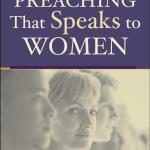Can There Be Ambiguity without Ambivalence in Christian Existence?
This is a question I’ve been wrestling with for many years without quite being able to express it in this way (see the title above). Put another way, is it possible, as an authentic Christian, to place a question mark over all formal, doctrinal beliefs while at the same time experiencing no ambivalence about the reality behind the doctrines?
By “putting a question mark over” I don’t mean denying them; I mean only recognizing they might be wrong and in need of correction—from God himself through his revelation given to us in Jesus Christ. Can an authentic Christian recognize and acknowledge ambiguity in the doctrinal realm while experiencing no ambivalence about God’s reality, love, presence, and Jesus Christ as savior and lord? Or are ambiguity and ambivalence inextricably linked such that any recognition of and acknowledgement of ambiguity in the doctrinal realm automatically brings with it spiritual ambivalence?
Let me express this slightly differently to attempt to make the question clearer. Can a person have inner certainty (certitude, confident assurance) about God, about Jesus Christ, about the Holy Spirit—their reality and presence—without claiming certainty about Christian dogmas and doctrines?
*Sidebar: The opinions expressed here are my own (or those of the guest writer); I do not speak for any other person, group or organization; nor do I imply that the opinions expressed here reflect those of any other person, group or organization unless I say so specifically. Before commenting read the entire post and the “Note to commenters” at its end.*
What I’m talking about here are dispositions—inward attitudes, states of mind and feeling, total personal “postures toward.” One says something like “All formal doctrines, or doctrinal formulations, are ‘man-made’ and more or less true, conceivably wrong, open to correction, and about them I lack total, absolute certainty.” That’s what I am calling ambiguity—a recognition of the ambiguity of all man-made doctrinal formulations. The other says something like “Because all formal doctrines contain some level of ambiguity, faith in God, in Jesus Christ, my very Christian existence, is doubtful and uncertain and I am ambivalent about it.”
Theologian Paul Tillich said (and others like Frederick Buechner agreed) that faith always includes a “moment” or element of doubt. Here I’m asking whether that might be true with regard to faith in doctrines even if not necessarily true with regard to faith in God, in Jesus Christ as Savior, in the Bible as (in some sense) God’s special Word, in the Holy Spirit as life-transforming gift, etc.?
Again, the question I am raising (and wrestling with for myself) is whether it is possible to honestly admit ambiguity in all doctrines—without throwing them all out just for that reason—while at the same time having no ambivalence about reality of God, the person of Jesus Christ as God-for-me, savior and lord, the Bible as God’s story of love through which he reveals his will, and the Holy Spirit as God’s gift of his own indwelling and transforming presence.
I think I am noticing something among many, perhaps most, Christians in America that results in me finding it somewhat difficult to “fit in” among them.
Most Christians seem to think that these two dispositions (as described above) are really one disposition such that recognition of ambiguity in all doctrines necessarily implies ambivalence about the reality of God—spiritual ambivalence. This seems to be true on both the “right” and the “left” of the spiritual-theological spectrum. The evidence of this (to me) false identity or linkage is in the apparent fact that most American Christians expect the following: If a person expresses belief in ambiguity in the doctrinal realm he or she must be spiritually weak; if a person expresses certitude, assurance, in the spiritual realm he or she must be an absolutist with regard to doctrines.
Rarely have I ever met a person who refused to admit any ambiguity with regard to doctrines, who was truly an absolutist with regard to doctrinal certainty, who lacked inward, spiritual assurance. It is possible, of course, but it is in my experience extremely rare. (By “doctrinal certainty” in that next-to-last sentence I refer to specifically Christian doctrines.) Why would a person ever claim total assurance of the absolute truth of specifically Christian doctrines with no doubt or openness to the possibility they could need correction while at the same time claiming lack of inward, personal assurance of the reality of the presence of God, Jesus Christ as savior and lord, the Holy Spirit as transforming gift at work in their life—at least convicting and calling them? That would seem extremely odd (even if possible).
What I am wrestling with here is the role of doubt in faith.
One of my favorite theologians, Emil Brunner (d. 1965), adamantly claimed that true Christian faith includes certainty—not as a permanent reality that needs no maintenance but as a real state or condition, inward disposition, that excludes constant doubting. But I am convinced he meant this about the normal Christian disposition with regard to God-in-one’s-life, about God’s love and presence to the Christian person, about communion with God or at least God’s desire for communion with us, having done everything for that to happen, to be real. I do not think he meant it with regard to doctrines as such.
But another caveat is in order here. Perhaps a true, authentic Christian can and should have doubt about his or her inward, spiritual condition while, at the same time, having no doubt about God’s love, forgiveness, and desire for communion and offer of the gift of the Holy Spirit as transforming presence.
Frederick Buechner famously said that “Doubt is the ants in the pants of faith; it keeps it moving.” But what is the “faith” in that claim? I would say it is belief in the accuracy of doctrines and self-confidence about one’s own spiritual condition insofar as that depends on his or her openness to the total, transforming work of God in his or her life.
Can I, can you, arrive through the work of the Holy Spirit, at a total disposition of inward certitude that “God is real; he’s real in my soul. My God is real, for he has washed and made me whole” (to quote a famous song) while at the same time having a total disposition of objective uncertainty about doctrines and my/your spiritual condition of allowing the Spirit to transform my/your personal, spiritual existence in Christlikeness?
It seems that many Christians, both fundamentalist and progressive, think not. I happen to think so and that is one reason I find it difficult to “fit in” anywhere.
Somewhere Tillich said (in an interview, as I recall) that he did not have faith in the Trinity as a doctrine. He said he could and did believe in the doctrine of the Trinity more or less. But true “faith,” as he meant it, should always only be in God, never in doctrines. I think Brunner and Tillich would have agreed on that—as far apart as they were on many other matters. I tend to agree on that.
Now, none of what I have said here points to any neglect of doctrine on my part—anymore than it did on Brunner’s part. Churches must have doctrines; doctrines are inevitable and inescapable and we should make them as correct as humanly possible all the while recognizing that our faith is not in them and they could possibly be wrong—need correction.
For example (I know people need examples)—N. T. Wright has worked tirelessly on the traditional doctrine of justification by faith without ever showing any evidence (I do know him personally) of doubt about God’s grace. I take it what he wants is for evangelical (and perhaps other) churches to adjust their beliefs and confessions about “justification” without throwing doubt over God’s loving, forgiving, transforming reality and presence. And, knowing Tom, I am confident that he does not think his reformulation of the doctrine of justification is beyond correction. His inward faith is not in a doctrinal formulation (although I should not speak for him; I’m only saying what I think about him) but in the God of grace who justifies him, makes him right with himself.
To extend this example—I suspect there are people who doubt the strength of the reality of Tom’s personal faith just because he has casts doubt on the traditional Protestant doctrine of justification. And I suspect there are people who question the consistency between Tom’s personal assurance of God in his life—“beyond constant doubt and uncertainty”—and Tom’s apparent concern to get doctrine as right as possible for the sake of the people of God.
I know I am struggling to make myself clear, but I think that is because so many American Christians seem to equate doctrine with faith.
May I go out on a limb in this mere musing (that is what my blog posts are, anyway, not confessions of absolute truth) and say that I have for a very long time felt total assurance, “proper confidence,” in the God of my salvation while at the same time recognizing some degree of ambiguity in all doctrinal formulations.
Now, anyone who doubts my passion for theology and even doctrine simply doesn’t know me. Ask my students. But that passion for theology and even doctrine does not include or imply absolutism about any man-made doctrinal formulation. My personal faith and inward assurance are not in them; as important as I think they are. In fact, I will so far as to claim no real ambivalence toward what I consider true doctrine—even as I am disposed to admit ambiguity in them. I love doctrines; I love theology. At the same time, even as I admit ambiguity in all doctrinal formulations (it is conceivably possible every one of them needs correction and reformulation), I feel no ambivalence within myself about the God of my salvation, no real doubt as a personal posture or disposition (even when attacks of the enemy come at me about this) about Jesus Christ as my savior and lord.
Truth is absolutely important to Christian faith; I am not demeaning truth. What I am saying is that truth, intellectual, cognitive truth, about God, is elusive because of our finitude and fallenness. I am a critical realist, so I don’t mean truth is totally elusive as if there could be no glimpses, visions, even knowledge (properly understood as justified belief) about God. However, I am wary, even suspicious, of anyone who claims to have grasped God intellectually, cognitive, within a mental construct in some absolute manner with absolute certainty.
What I am saying is not elusive is the real presence of God to the heart and soul of a person who submits himself/herself to the Holy Spirit. That God is real and that God loves us, and that Jesus Christ is savior and lord, and that the Holy Spirit wants to and can transform us into persons somewhat like Jesus is not elusive even as such claims by others can be doubted. There can be certitude, not rational certainty in the Enlightenment sense, in the spiritual realm. “Thank God my doubts are settled and I know, I know it’s real.” That comes only from the Holy Spirit, however, and is not a result solely of clever apologetics or reading books of theology or attending church often or taking the sacraments—as good and helpful these are. But the indwelling of the Holy Spirit by faith (receptiveness, desire, commitment) can bring with it (him) inner assurance, proper confidence, settled certitude that rises above the battle with doubt.
*Note to commenters: This blog is not a discussion board; please respond with a question or comment only to me. If you do not share my evangelical Christian perspective (very broadly defined), feel free to ask a question for clarification, but know that this is not a space for debating incommensurate perspectives/worldviews. In any case, know that there is no guarantee that your question or comment will be posted by the moderator or answered by the writer. If you hope for your question or comment to appear here and be answered or responded to, make sure it is civil, respectful, and “on topic.” Do not comment if you have not read the entire post and do not misrepresent what it says. Keep any comment (including questions) to minimal length; do not post essays, sermons or testimonies here. Do not post links to internet sites here. This is a space for expressions of the blogger’s (or guest writers’) opinions and constructive dialogue among evangelical Christians (very broadly defined).

















